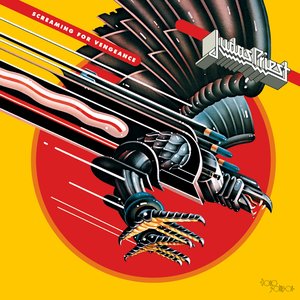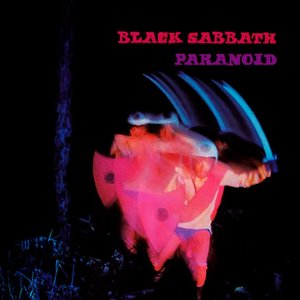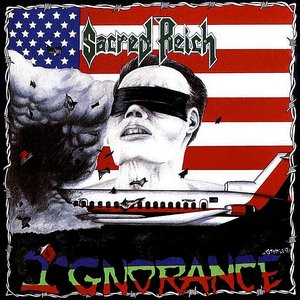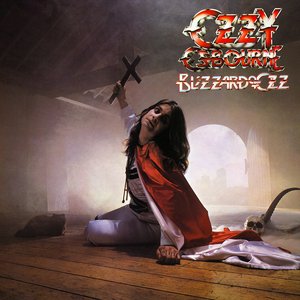Wiki
-
Release Date
1 January 1988
-
Length
8 tracks
So Far, So Good… So What! is the third studio album by American thrash metal band Megadeth, released on January 19, 1988, by Capitol Records. It was the band's only album recorded with drummer Chuck Behler and guitarist Jeff Young, both of whom were fired from the band in early 1989, several months after the completion of the album's world tour. So Far, So Good… So What! features music performed at fast tempos with technical ability; lyrically, frontman and guitarist Dave Mustaine addresses a variety of topics, including nuclear holocaust and freedom of speech.
So Far, So Good… So What! was well received by critics upon its release, although retrospective analysis has been less favorable. It managed to enter the top-thirty of the Billboard 200 (although it received no commercial radio play), and charted in several other countries as well. The album was eventually certified platinum by the RIAA, and indicated Megadeth's forthcoming emergence from the underground scene.
Guitarist Chris Poland and drummer Gar Samuelson had been both fired from the band following the conclusion of the Peace Sells tour for disruptive behavior, including Poland's habit of pawning band equipment to pay for drugs. Samuelson was immediately replaced by his drum technician, Chuck Behler (although Slayer's Dave Lombardo considered joining). However, a new guitarist would take longer to emerge. At first, the band hired guitarist Jay Reynolds from the band Malice, but Reynolds was not up to the task of recording, and was subsequently replaced by his guitar teacher, Jeff Young. Dave Mustaine has since stated his regret for the way he handled Reynolds's firing. Other guitarists considered included Slash from Guns N' Roses.
Work on the album started while Reynolds was in the band, but continued after the induction of Young. To mix the album, the label turned to Paul Lani, who had remixed the band's previous album, Peace Sells… but Who's Buying?. Mustaine was initially skeptical, but later became very irate with Lani's "eccentricities" and his way of handling things. To mix the album, Lani relocated himself and Mustaine to Bearsville Studios, near Woodstock, New York, ostensibly for the purpose of inspiration. Mustaine decided that he had his limits when he, having just awakened and made coffee, noticed Lani outside in his underwear feeding an apple to a deer. Mustaine flew back to Los Angeles later that day and fired Lani, who was replaced by Michael Wagener. Mustaine has since criticized Wagener's "pedestrian" mixing efforts, citing the album's "muddy feel", in particular. Mustaine was able to recruit Sex Pistols guitarist Steve Jones to perform guitar parts on "Anarchy in the U.K."
According to music critic J. D. Considine of Spin, So Far, So Good… So What! displays music performed at "volumes approaching the threshold of pain". This was the first album where another band member other than Mustaine contributed to writing, with bassist David Ellefson contributing to either lyrics or music on half of the album's songs. The album features fast guitar solos, multiple tempo changes and technical dexterity. Mike Stagno of Sputnikmusic observed that the album offers the classic "take no prisoners" style which is commonly associated with Megadeth; however, he noted that the sound does not differ much from the other underground metal bands from that period. Jim Farber of Rolling Stone called Mustaine's vocals "bloodthirsty" and praised the musicianship for keeping rhythmic pace even at the "most anarchic moments". Los Angeles Times journalist Dennis Hunt noted that the music was filled with extensive and "torrid" instrumentals and described Mustaine's singing as a combination of extreme shrieking and screaming. Despite the positive overview, "Anarchy in the U.K." received some negative criticism, partially because it was perceived to lack the rebelliousness of the original version.
The lyrical themes on the album explore a variety of subjects, from nuclear holocaust ("Set the World Afire") to revisionism and censorship ("Hook in Mouth"). Still, the majority of the songs are accompanied by the same sentiment of disillusion and nihilism as their previous two albums. Unlike traditional topics related to heavy metal music, the song "In My Darkest Hour" contains emotional lyrics which deal with loneliness and isolation. Dave Mustaine revealed that he tried to write about subject matters that were in touch with reality, including social issues and taboo topics. The lyrics on Megadeth's cover of "Anarchy in the U.K." were slightly mistaken because Mustaine claimed he had heard them incorrectly.
The album's first track, "Into the Lungs of Hell", is an instrumental composition which features synthesized horns, winds and percussion. "Set the World Afire" is the first song Dave Mustaine wrote for Megadeth after being fired from Metallica. He was a member of Metallica from 1981 to 1983, and was dismissed just before Metallica recorded its debut album Kill 'Em All. He later said that he wrote the lyrics during his journey home from the departure. Inspiration for the song came from a newspaper he read while on the bus back to California. The initial lyrics were written with a borrowed pencil on a cupcake wrapper, leading some fans to refer to "Set the World Afire" as "the cupcake song". The beginning of the song contains a sample of "I Don't Want to Set the World on Fire", a 1941 song by The Ink Spots.
"Anarchy in the U.K." is a Sex Pistols cover, which quickly became a staple of the band's live set. Over the years, the song was dropped from the set list because of its anti-Christian viewpoint. "Mary Jane" tells a story about a young witch buried alive by her father near the Loon Lake cemetery in Minnesota. According to the legend, anyone who dared to disturb her grave was doomed to a prompt death. The song features descending guitar lines and begins with Mustaine summoning her spirit during the introduction.
"502" is about breaking laws and driving fast cars. The title is a reference to the police code in California for drunk driving; Mustaine himself would be arrested for drunk driving in March the following year when he crashed into a police car. "In My Darkest Hour" was written by Mustaine shortly after the death of Metallica bassist Cliff Burton. Mustaine had found out through word of mouth, as his former bandmates never contacted him about the tragic event that occurred in Europe. He later recalled that he was extremely unhappy that day and wrote the song in one sitting. "Liar" is a diss song directed at past member Chris Poland, who Mustaine claimed was stealing guitars and selling them for heroin money. "Hook in Mouth" declaims censorship and the Parents Music Resource Center (PMRC). Mustaine elaborated that the lyrics were aimed at those who were "fucking around with our constitutional rights and trying to take away our freedom of speech"
Album descriptions on Last.fm are editable by everyone. Feel free to contribute!
All user-contributed text on this page is available under the Creative Commons Attribution-ShareAlike License; additional terms may apply.












